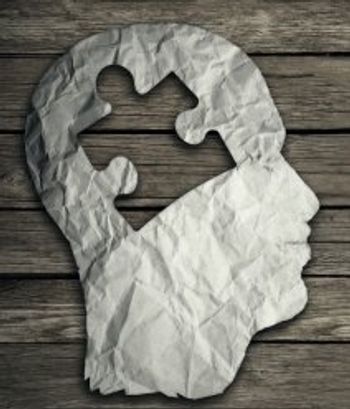
These 3 steps can help you ensure that shared decision making is actually taking place.

These 3 steps can help you ensure that shared decision making is actually taking place.
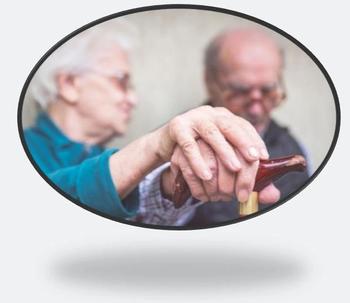
Persons with dementia can still retain the capacity to experience humor, joy, and mutual interactions. Therein lie the seeds of a new perspective on aging.

Grief vs depression? MDD vs depressive episodes? SGAs in treatment-resistant depression? Treatment-emergent sexual dysfunction? Insights in this Q&A.

Here: a Q&A about diagnostic challenges in the real world; pharmacologic and non-medication options; and management of common adverse events in patients with DSM-5 bipolar and related disorders.

Although Asperger disorder is now included as part of the overall autism spectrum disorder, some say Pandora’s box has been opened.

Schizophrenia and T2 DM risk; short-term weight gain with specific antipsychotics; interventions to reduce weight and/or metabolic abnormalities. . .answers here.

In this video, Dr Karl Doghramji, describes the various agents available for managing sleep disorders and discusses the adverse effects associated with over-the-counter, nutraceutical, and prescription sleep aids.

Standardized, quantifiable outcome measures exist for most major psychiatric disorders, yet they are rarely used in routine clinical practice. This article identifies the rationale for using psychiatric scales.
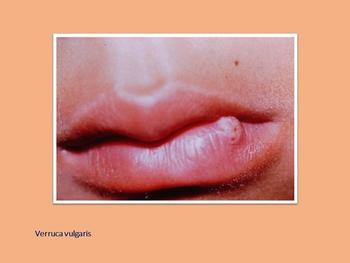
In this podcast, Drs Shah and Lustig provide a summary of their presentation at the 2014 Psychiatric and Mental Health Congress and explain the process, rationale, and application of the numerous changes to the CPT codes.

How can we get even better at customizing treatment for our patients and thereby achieve improved outcomes? How do we avoid becoming relegated to mere brokers of psychopharmacologic commodities? A few thoughts in this brief communication.

Non-adherence to prescribed medication by patients with psychiatric disorders is one of the greatest challenges reported by clinicians.

A significant number of patients have some degree of personality pathology that can interfere with treatment, whether they receive medication or some form of psychotherapy. But how can clinicians develop a strong therapeutic alliance with patients who have personality disorders? An expert explains.

A comprehensive adjustment to life after having had a psychotic episode and diagnosis of schizophrenia is a relatively new concept. An expert describes the post-psychotic adjustment process.

We have medications that can affect serotonin, norepinephrine, and-to a lesser extent-dopamine. Many other neurotransmitters are involved with mood disorders, but we have no medications yet to target them. Neurostimulation offers a non-systemic somatic approach to depression, often with an improved side effect profile. More in this Q&A.

It is absolutely essential that every person who has bipolar disorder be screened for risk factors related to metabolic syndrome and diabetes and traditional risk factors like overweight and eating habits. More in this podcast.

The lay press has focused a lot of attention on the use of ketamine as a potentially rapidly acting treatment for depression. But are psychiatrists really ready to offer ketamine as a treatment alternative for mood disorders? An expert weighs in.

Suicide is not being adequately addressed in terms of prevention, and part of that process is better education of mental health professionals and primary care physicians. More in this expert Q&A.

We know there is extensive overlap between bipolar disorder and medical morbidity-including obesity, diabetes, and metabolic syndrome. The real question is why. More in this podcast.

A video summarizing key points of a presentation titled “Agitation and Aggression: Managing the Acute Episode and Beyond, An Evidence-Based Approach.”

The menopausal transition is characterized by sex hormone variability and a vulnerability to depressive symptoms and major depressive episodes. The rate of new-onset major depressive episodes is increased during the menopausal transition, as is the experience of depressive symptoms.

A proper psychiatric diagnosis requires the ability to elicit information, identify symptoms, and recognize behavioral patterns. Dr Michael First, author of DSM-5 Handbook of Differential Diagnosis, summarizes key points in this brief video.

An expert discusses behavioral indicators and screening instruments for suicide risk.

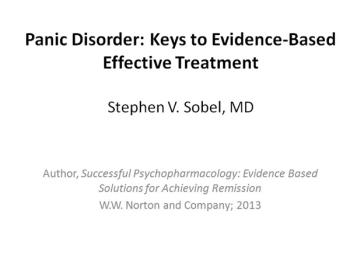
Keys to the management of panic disorder include appropriate use of psychotropic medication and psychotherapy predicated on an understanding of the disorder's biopsychosocial underpinnings. Here, Stephen V. Sobel, MD, focuses on treatment options.
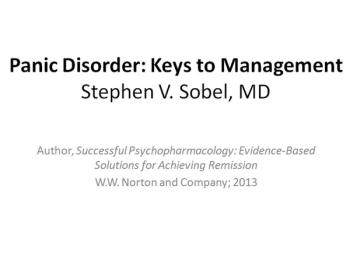
Keys to the management of panic disorder include appropriate use of psychotropic medication and psychotherapy predicated on an understanding of the biopsychosocial underpinnings. More in this podcast.

A newly published qualitative literature review found stimulants may provide neuroprotective effects for children with ADHD.

In a PsychCongress presentation on perinatal mood disorders, Marlene Freeman, MD, stressed that treatment is essential for women with mood disorders-but whether to treat becomes complicated during a women’s reproductive years.

This member of the DSM-5 Work Group for Psychotic Disorders describes the 8 dimensions used to define the presentation of psychosis-the biggest and most clinically important of the changes in the schizophrenia and other psychotic disorders section.

You’ve come a long way, baby. But maybe not long enough, according to Dr Rajiv Tandon, who shared the evolution of schizophrenia diagnosis and highlighted the current status for attendees at the US Psychiatric and Mental Health Congress.

Big things are happening in Alzheimer disease research. Recent developments are shaping the future for assessment and diagnosis and allowing for early detection and treatment of the disease.